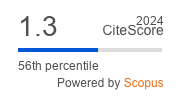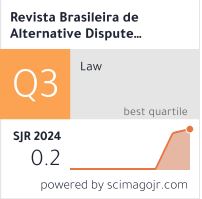The Role of Alternative Dispute Resolution in Development of Inclusive Academic Environment on Inter-University Campus
DOI:
https://doi.org/10.52028/rbadr.v7.i13.ART08.RUKeywords:
Constitutional law, Right to education, Inclusive education, Inclusive higher education, International law, Human rights, Education for all, Alternative dispute resolution, Mediation, Arbitration, Informal negotiationsAbstract
The authors of this article investigate the specifics of implementing the human right to education for all within the framework of higher education. They utilize various methods, including comparative legal analysis, qualitative data analysis, case study, induction, and deduction, to assess the need to broaden the interpretation of inclusion in Russian national projects to increase the attractiveness of higher education through international-level university campi. The researchers use their findings to identify new categories of vulnerable citizens and highlight the importance of alternative dispute resolution methods in ensuring the implementation of inclusion within the academic environment of an inter-university campus. Ultimately, they conclude that their results enable them to combine two key aspects: ensuring inclusion as a fundamental principle of the rule of law in the academic sphere, and utilizing ADR methods as an effective tool for preventing and resolving conflicts within a university community.
References
BJERKE A. H., DALLAND C. Negotiating performative and professional accountability in inclusive mathematics education in Norway, International Journal of Educational Research, 129, 102518. 2025.
CELÍK, S., & OZENC-IRA, G. Being outside the circle vs. squaring the circle: Perceptions of Syrian refugee students and academics on inclusive campus climate, International Journal of Intercultural Relations, 102, 102021. 2024.
DETOCHENKO L. S. Modern tendencies of ensuring inclusivity in the paradigm of higher education, Sociologija, 4, pp. 145-152. 2022.
DYACHKOVA M. A., TOMYUK O. N. Inclusive organizational culture as a culture of diversity accep tance and mutual understanding, Perspektivy Nauki i Obrazovanija, 41 (5), pp. 373-385. 2019.
FERREIRA, D. B., GROMOVA E.A., TITOVA E.V. The Principle of a Trial Within a Reasonable Time and JustTech: Benefits and Risks, Human Rights Review, 25, 1. P. 47-56, 2024.
FERREIRA, D. B., SEVERO, L. Multiparty Mediation as Solution for Urban Conflicts: A Case Analysis from Brazil, BRICS Law Journal, 8(3), 5-29, 2021. https://doi.org/10.21684/2412-2343-2021-8-3-5-29
GROMOVA, E.A., FERREIRA, D.B. Regulatory Sandbox: Bridging the Gaps by Designing a Dispute Resolution System. Conflict Resolution Quarterly, 2025. https://doi.org/10.1002/crq.21482
GROMOVA, E., FERREIRA, D.B. On the Way to BRICS+ Digital Sovereignty: Opportunities and Challenges of a New Era, BRICS Law Journal, 11, 3, P. 54-69, 2024. DOI 10.21684/2412-2343-2024-11-3-54-69.
GREBENJUK, I.JU. Support of social and emotional state of refugee students, Innovacionnaja nauka, 2 (2), pp. 94-98. 2023.
GONZALO, Ó., HERAS, I. Impact of the Quality of Life Supports Model on the inclusion of students with disabilities in higher education: A scoping review. Research in Developmental Disabilities, 154, 104850. 2024.
HUTSON, J., & HUTSON, P. Digital inclusion for people with autism spectrum disorders: Review of the current legal models and doctrinal concepts, Journal of Digital Technologies and Law, 1(4), pp. 851-879. 2023.
IQBAL, A. S. M. Tariq. Alternative Dispute Resolution in commercial transactions: A comparative study between the UK and Bangladesh Jurisdiction. Revista Brasileira de Alternative Dispute Resolution – RBADR, Belo Horizonte, ano 06, n. 12, p. 207-222, jul./dez. 2024. DOI: 10.52028/ rbadr.v6.i12.ART10.BGL.RBADR12_MIOLO.indd
KANTOR, V. Z. & PROEKT, Y. L. Inclusive higher education: Socio-psychological well-being of stu dents. The Education and science journal, 21(2), pp. 51-73. 2019.
KANTOR, V. Z. & PROEKT, Y. L. Inclusive educational process at the university: Theoretical and experimental model of teachers’ psychological readiness, The Education and science journal, 23(3), pp. 156-182. 2021.
MORIÑA A., PERERA V. H. Training needs of academics on inclusive education and disability, SAGE open, 10(3), 2158244020962758. 2020.
PRISIAZHNIUK, D., MAKOELLE, T. M., & ZANGIEVA, I. Teachers’ attitudes towards inclusive educa tion of children with special educational needs and disabilities in central Asia. Children and Youth Services Review, 160, 107535. 2024.
SBAITI M., COHEN, E. The ‘us and them divide’: A qualitative study of student experiences of glo bal health education through the lens of ‘inclusivity’, Social Science & Medicine, 117759. 2025.
SILVA, F. G. da. Educational inclusion in Brazil: a challenge for higher education, European Journal of Multidiscipli-nary Studies, 3(1), pp.16-20. 2018.
SMANTSER, A. & IGNATOVITCH, E. Future teacher training for work in inclusive educational environ ment: experimental study results, Procedia-Social and Behavioral Sciences, 214, pp. 422-229. 2015. VOLOSNIKOVA, L. M., ZAGVYAZINSKIY, V. I. The convergence of the concepts of academic and inclusive excellence at research universities. The Education and science journal, 23(4), pp. 43- 78. 2021.
WALTON, E. & ENGELBRECHT, P. Inclusive education in South Africa: Path dependencies and emergences, International Journal of Inclusive Education, 28(10), pp. 2138-2156. 2024.
WATKINS, A., D’ALESSIO, S. Inclusive Education, Research in Comparative and International Education, 4(3), pp. 229-232. 2009.
WOLFF CH. E., HUILLA H. Inclusive education in the diversifying environments of Finland, Iceland and the Netherlands: A multilingual systematic review, Research in Comparative and International Education, 16(1), pp. 3-21. 2021.
WOODCOCK, S., ANDERSON, J. Conceptions to classrooms: The influence of teacher knowledge on inclusive classroom practice, International Journal of Educational Research Open, 8, 100412. 2025.
QU, X. Making sense of policy development of inclusive education for children with disabilities in China, International Journal of Chinese Education, 13(1), 2212585X241234332. 2024
Downloads
Published
Issue
Section
License

This work is licensed under a Creative Commons Attribution 4.0 International License.
No royalties or other compensation shall be due for the publication of the works.
The opinions expressed by the authors of the articles and reviews are their sole responsibility.









